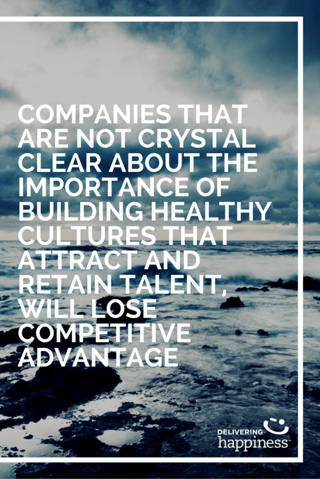Christine Porath, professor of business at Georgetown University, says in her NYTimes article, titled “Time to Be Nice at Work”:
“Rudeness and bad behavior have all grown over the last decades, particularly at work.”
 Porath provides a number of examples of how bosses produce demoralized employees: “walking away from a conversation because they lose interest, answering calls in the middle of meetings without leaving the room, openly mocking people by pointing out their flaws or personality quirks in front of others, reminding their subordinates of their “role” in the organization and “title”, and taking credit for wins, but pointing the finger at others when problems arise.”
Porath provides a number of examples of how bosses produce demoralized employees: “walking away from a conversation because they lose interest, answering calls in the middle of meetings without leaving the room, openly mocking people by pointing out their flaws or personality quirks in front of others, reminding their subordinates of their “role” in the organization and “title”, and taking credit for wins, but pointing the finger at others when problems arise.”
In my experience as an executive coach and business strategy consultant in Latin America, this “incivility” grows out of different factors. Many executives don’t know any better, because they misbehave based on the leadership model of their previous bosses, they are afraid of showing weakness and losing respect, or they are just too stressed out and their behavior is a product of their feelings.
A couple of weeks ago, I spent a few days in a company in Costa Rica, a small one, in a very low margin industry. The employees had struggled to survive financial crises, to overcome recessions in their main markets and to experience the difficult process of downsizing. And yet, after interviewing many of them at different levels, the sense of belonging, happiness and accomplishment was still there.
As a matter of fact, the employees told me how the company has lowered their rate of absenteeism, to the extent that some employees, after leaving the company to develop their careers elsewhere, come back as soon as they can. These individuals are willing to drive more and work more, for the sake of happiness.
The company is expanding internationally and has potential partners that are surprised to find such good practices, in terms of quality and international certifications on environmental measures.
What it is interesting to me is that this CEO has not made huge investments. He has, however, put his creativity into building a happy company culture. I will give you some examples:
Employees of my client refer to their working place as a paradise, in comparison to the jobs of their friends and family.
The truth is that, in my experience, more companies in Latin America have toxic cultures rather than healthy ones. This case is an example of creativity, where limited resources were optimized to achieve a healthy work environment, which additionally results in positive financial outcomes.
In the region, we still have many young, well-educated people and companies are used to mistreating their employees. Employers may mistakenly think that workers are easily substituted. However, in Costa Rica, the birth rate has lowered for years in a row, and we are beginning to notice the consequences; companies are currently struggling to find bilingual talent, of specific careers, to support their growth.
A month ago, I attended a presentation that was given by Stan Lepeak of KPMG. We were there to discuss the main challenges of the industry of Global Business Services in Costa Rica, and he shared a concern around the difficulties that will come in the future in finding engineers, business administrators, economists and accountants that are well trained and bilingual.
Companies that are not crystal clear about the importance of building healthy cultures that attract and retain talent will lose competitive advantage in the future. This is not new and sounds fairly simple, but it is difficult to achieve. This is happening worldwide, and it is also starting to happen here in my little country of Costa Rica.
About Ligia
 Ligia Olvera is the founder of LO & Asociados, a firm based in Costa Rica, Central America, dedicated to achieving significant personal and organizational transformation through leadership coaching, consulting, and training. Find Ligia on LinkedIn.
Ligia Olvera is the founder of LO & Asociados, a firm based in Costa Rica, Central America, dedicated to achieving significant personal and organizational transformation through leadership coaching, consulting, and training. Find Ligia on LinkedIn.